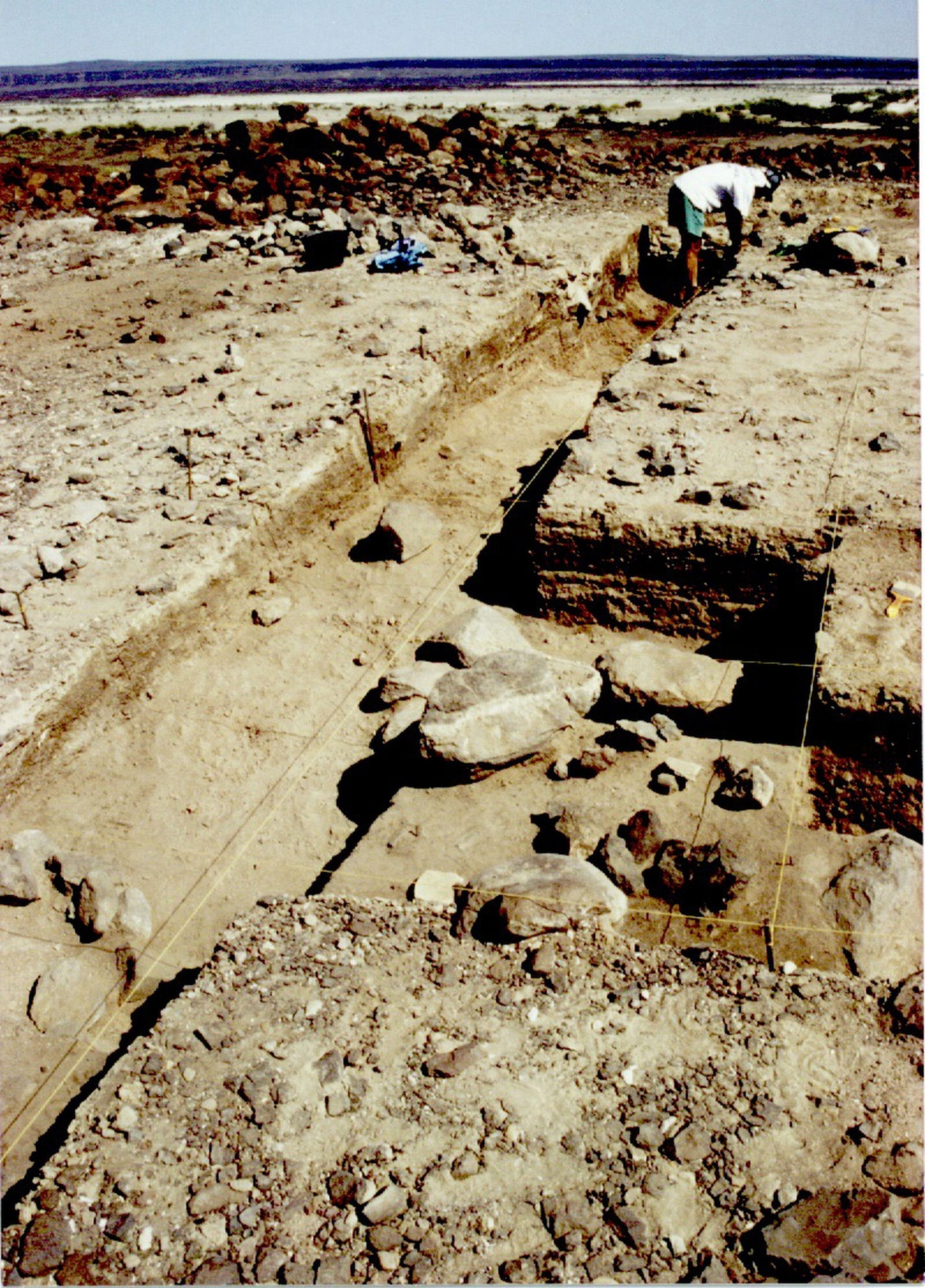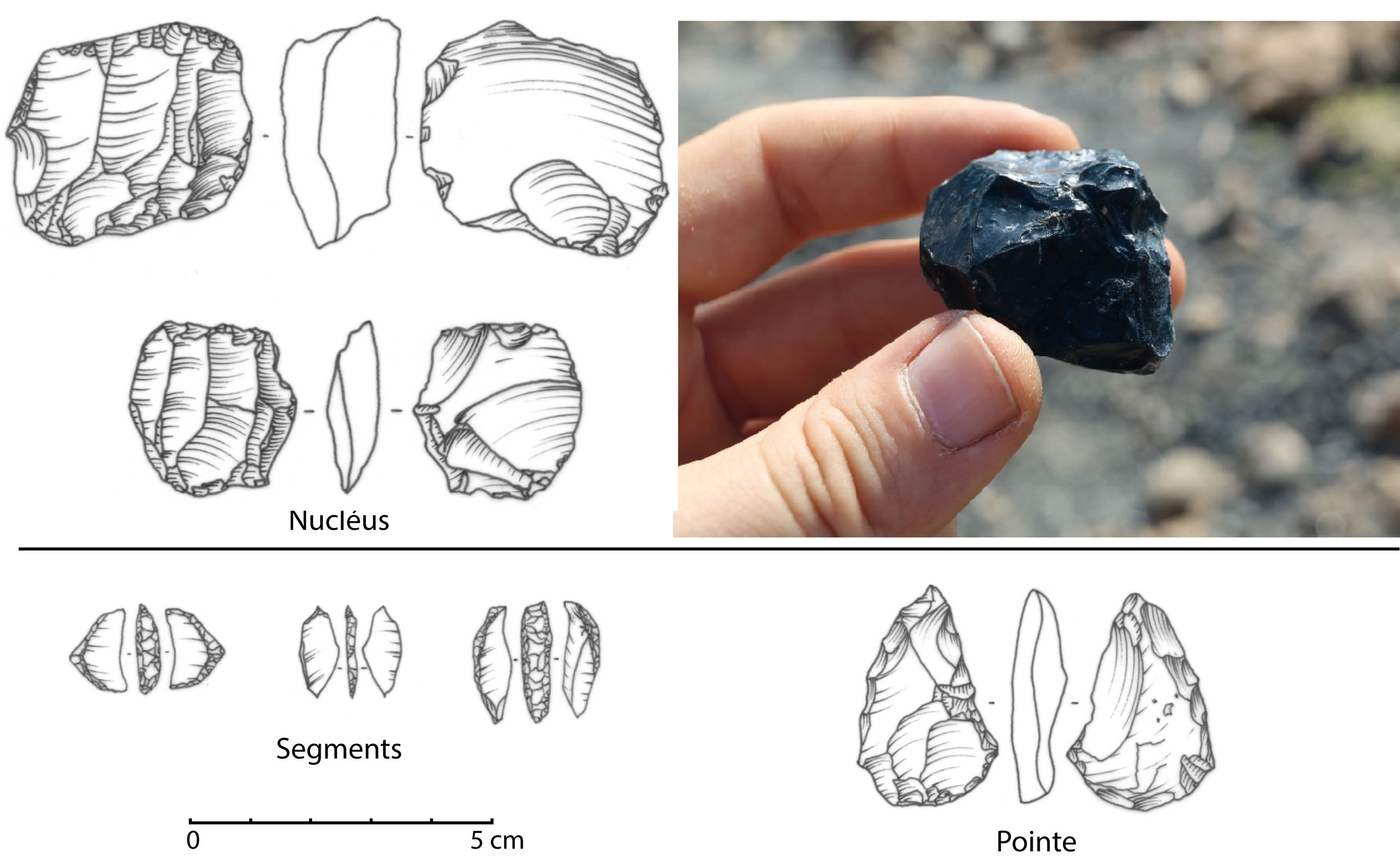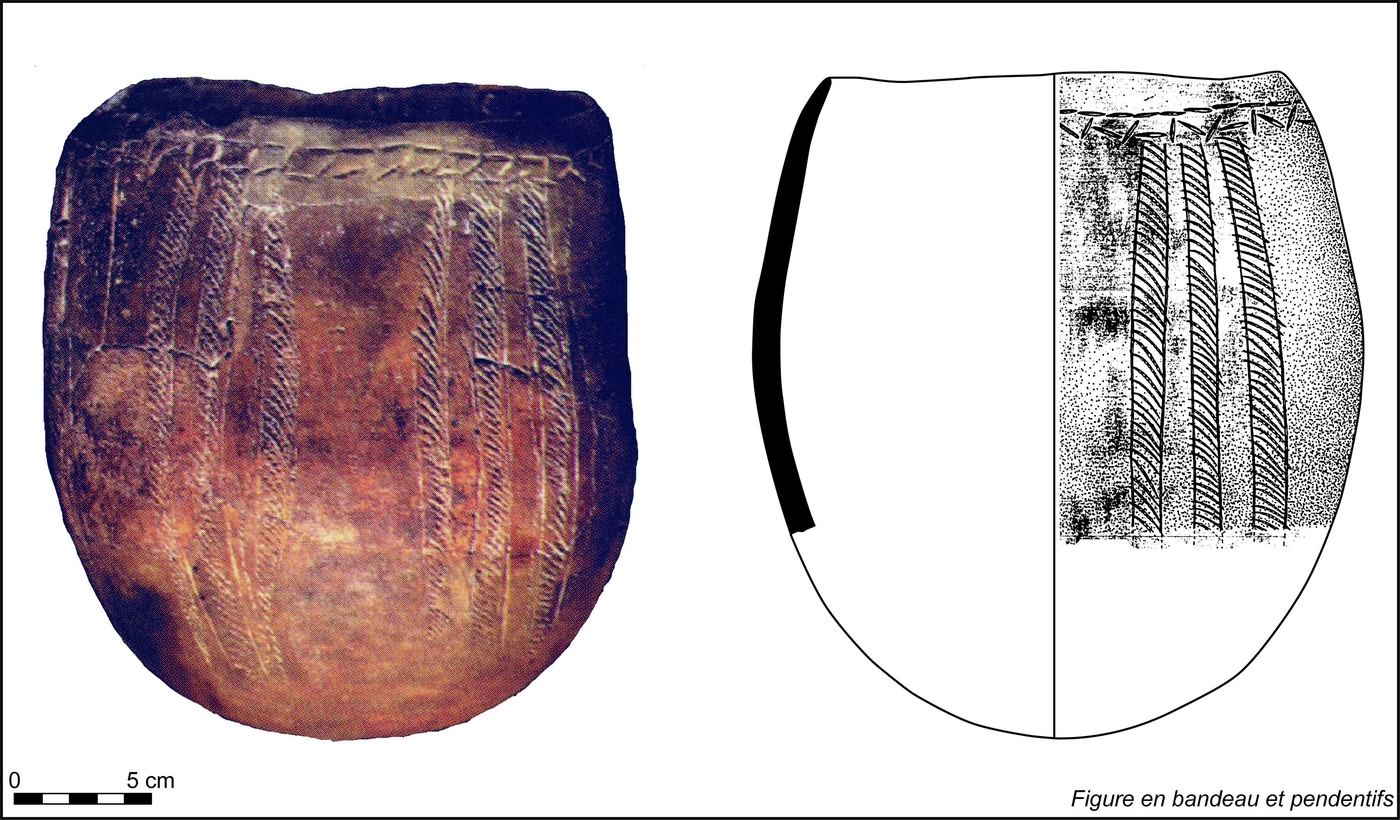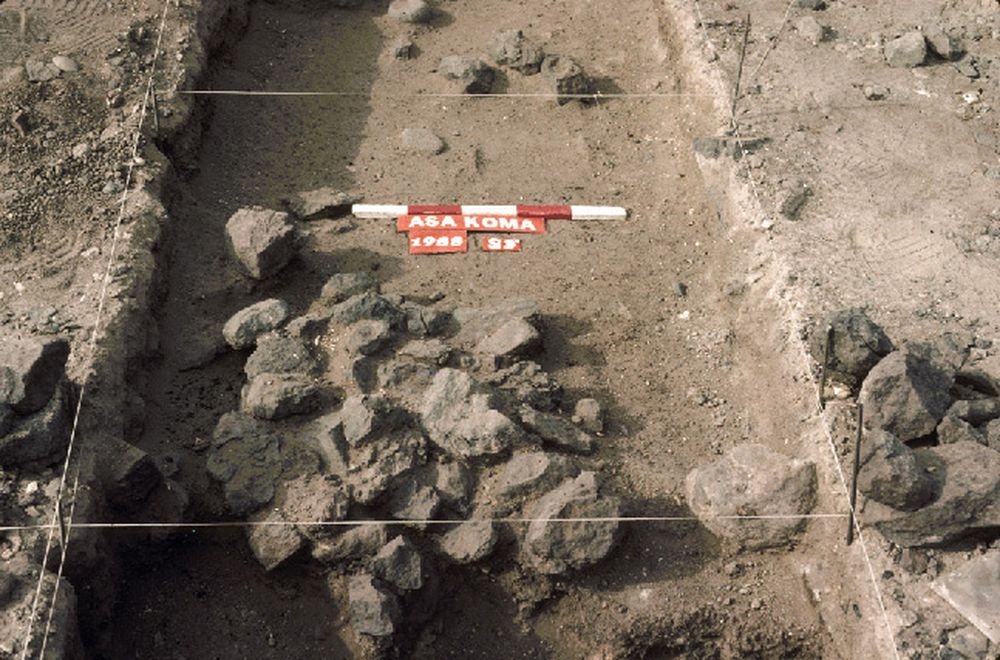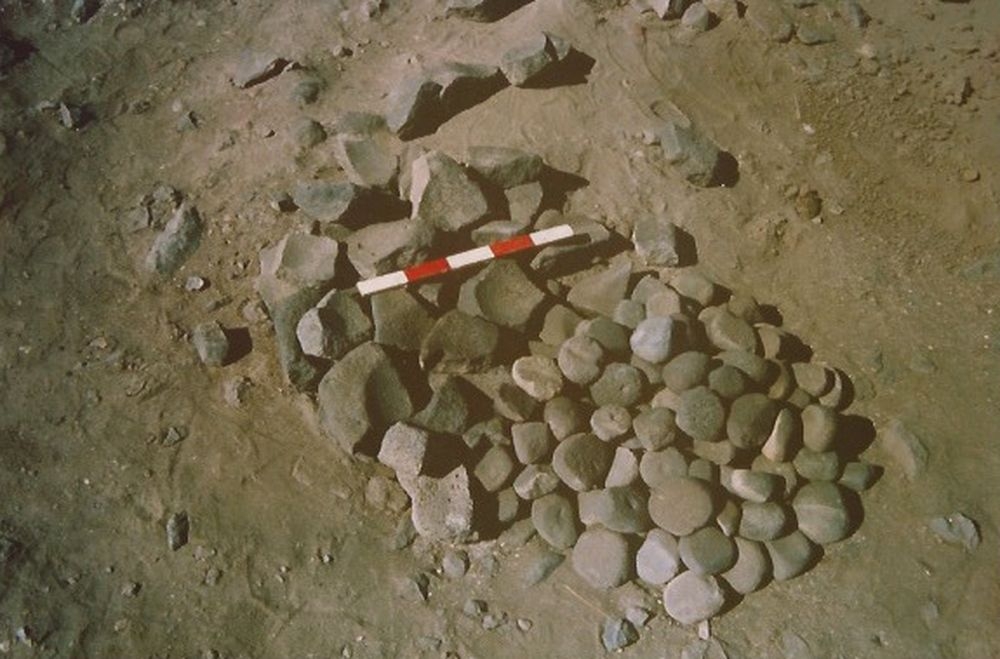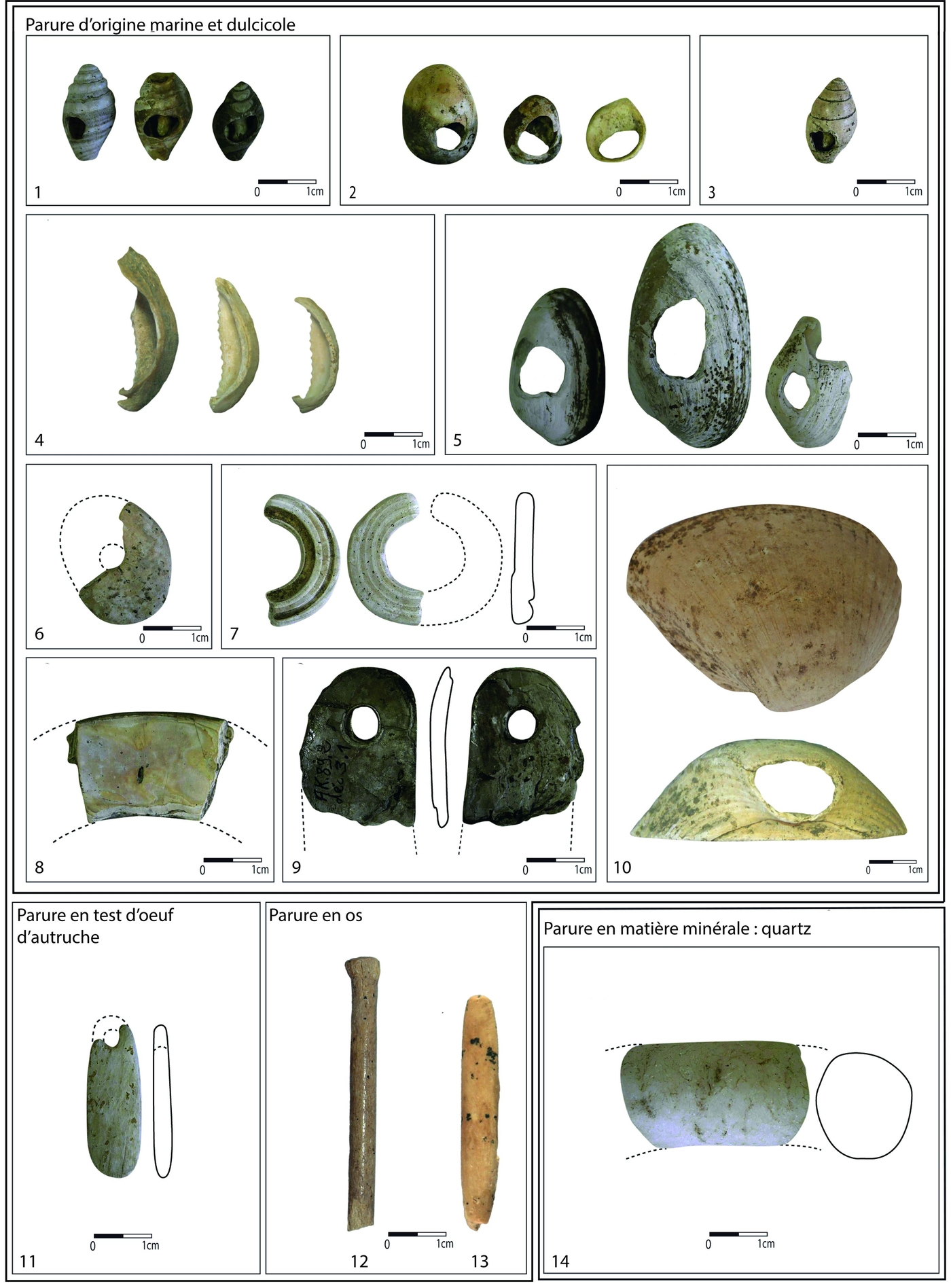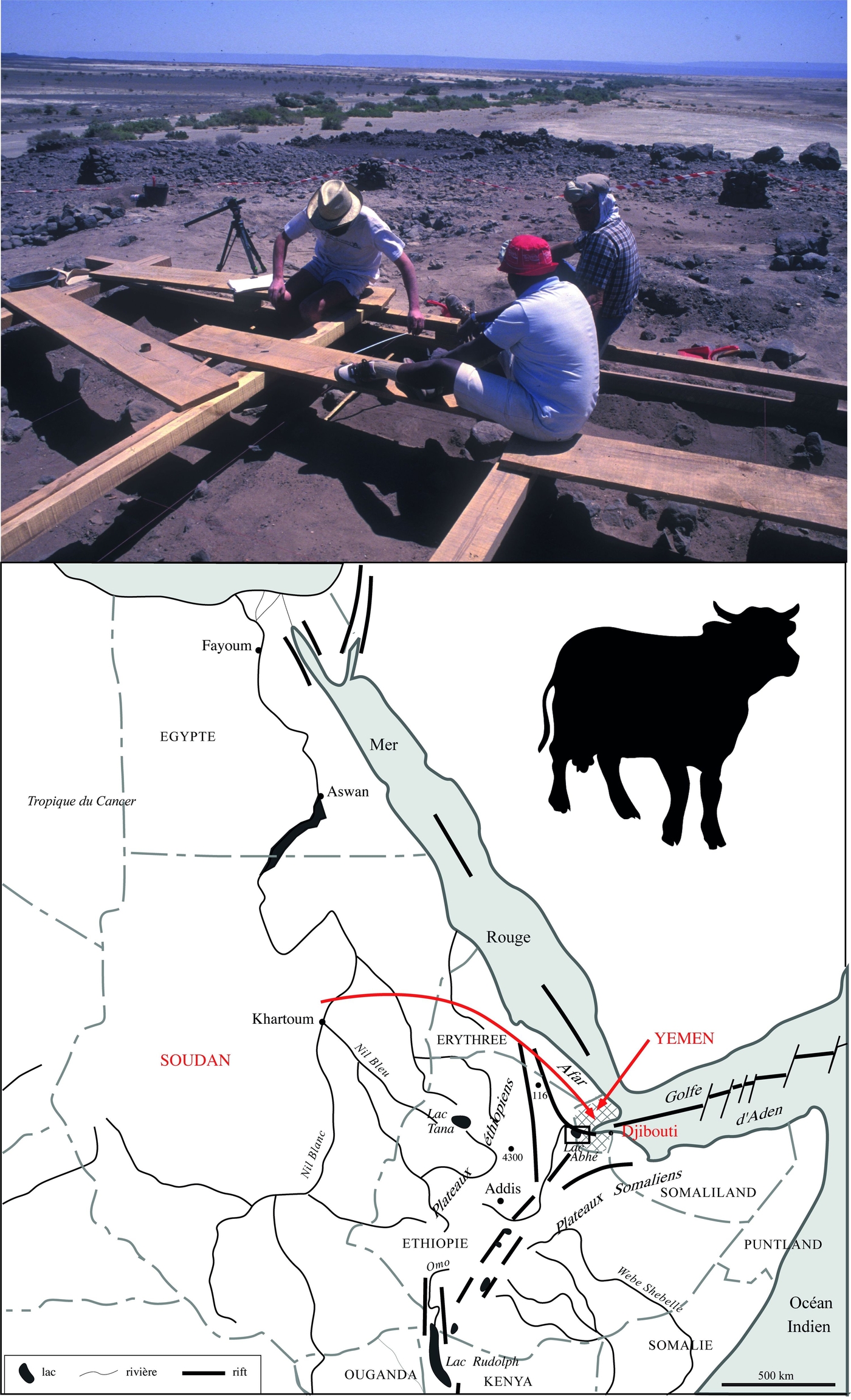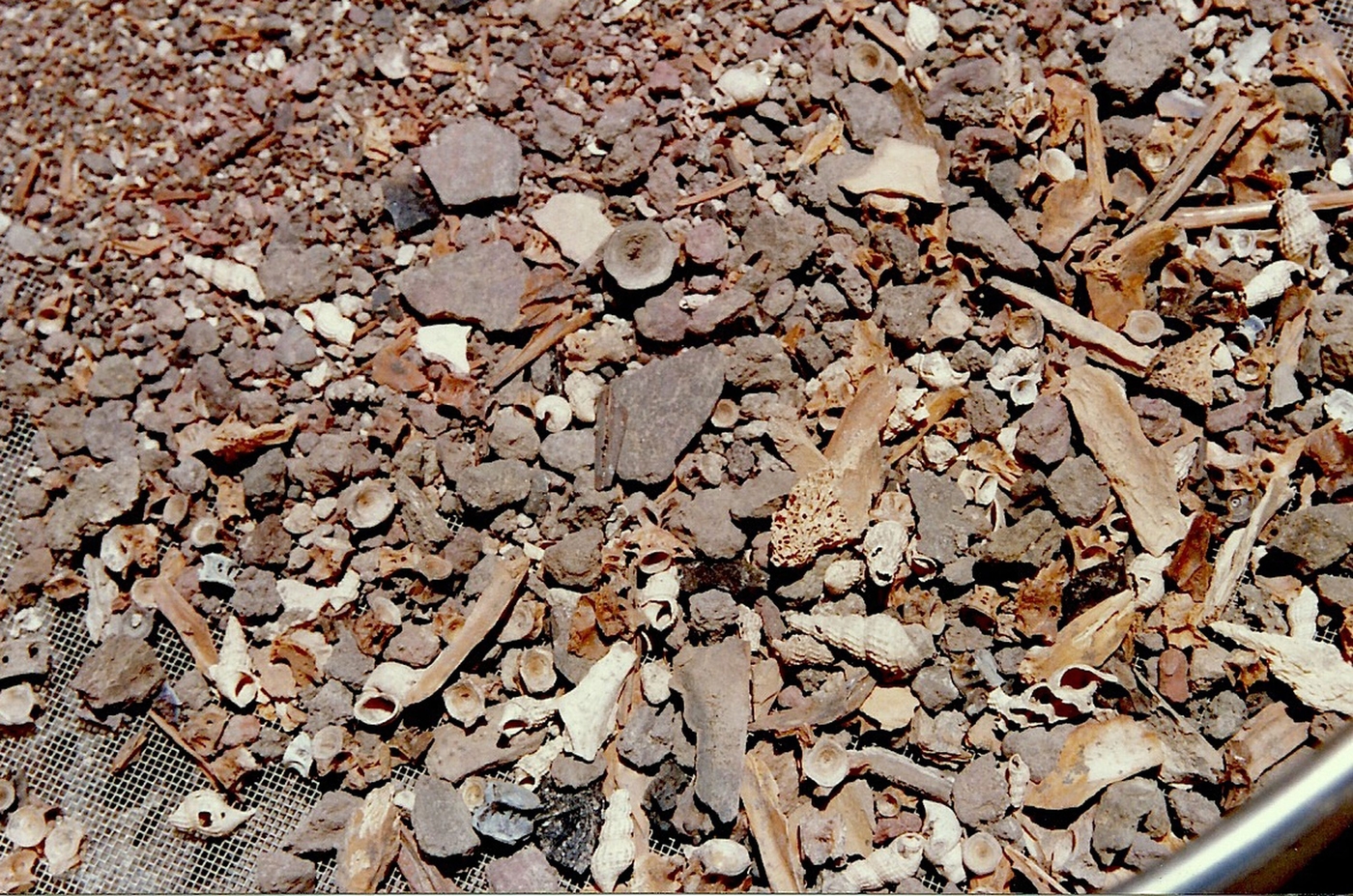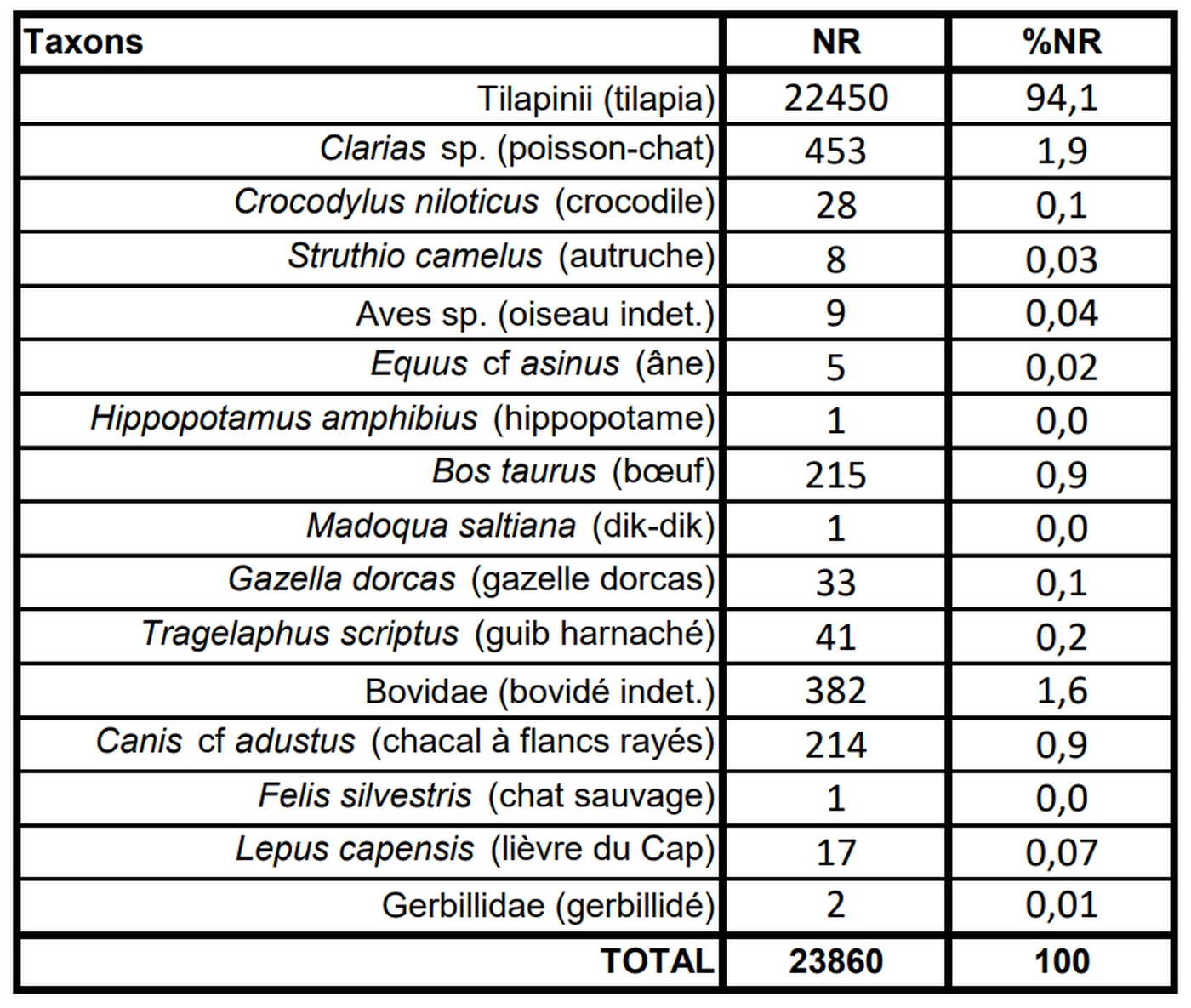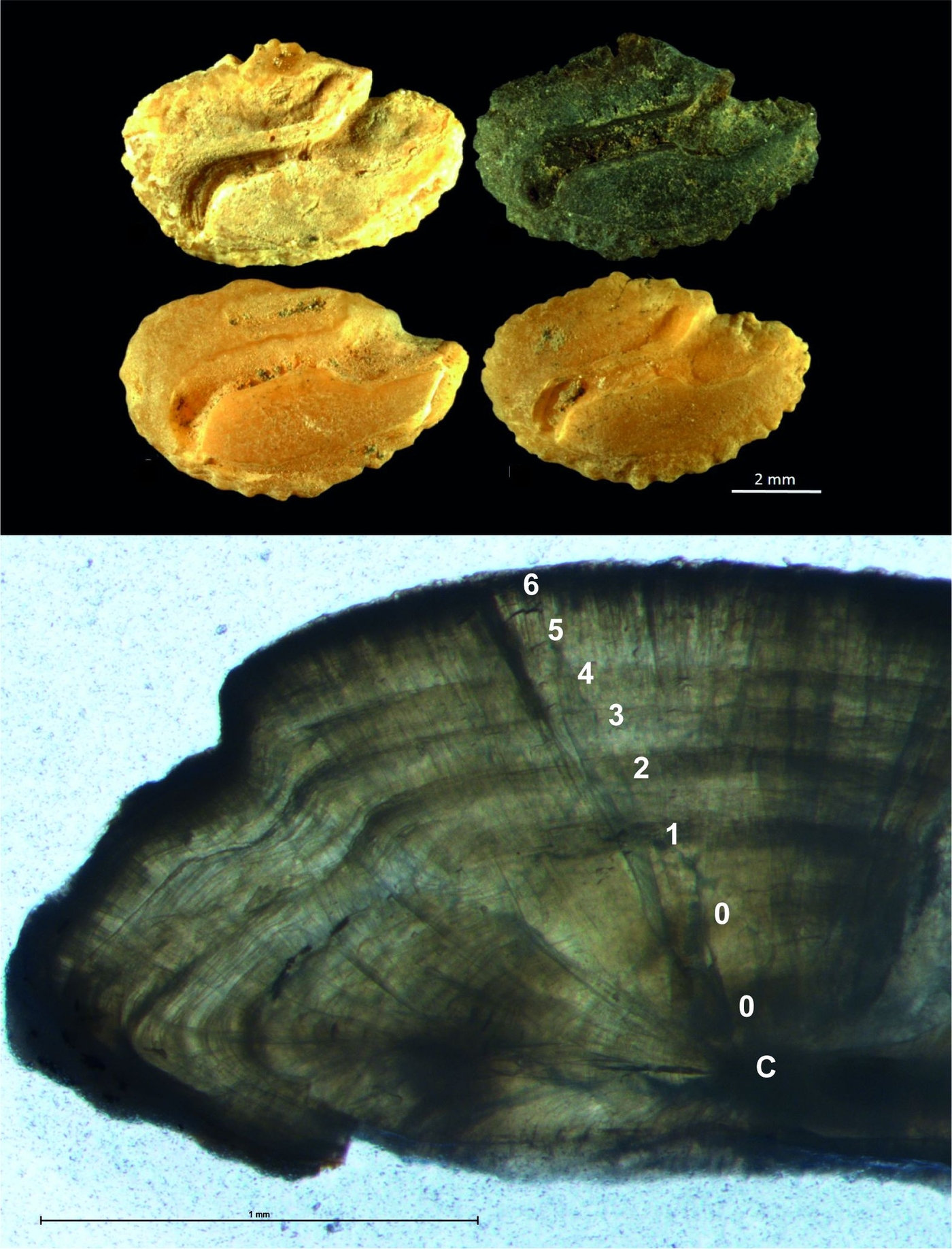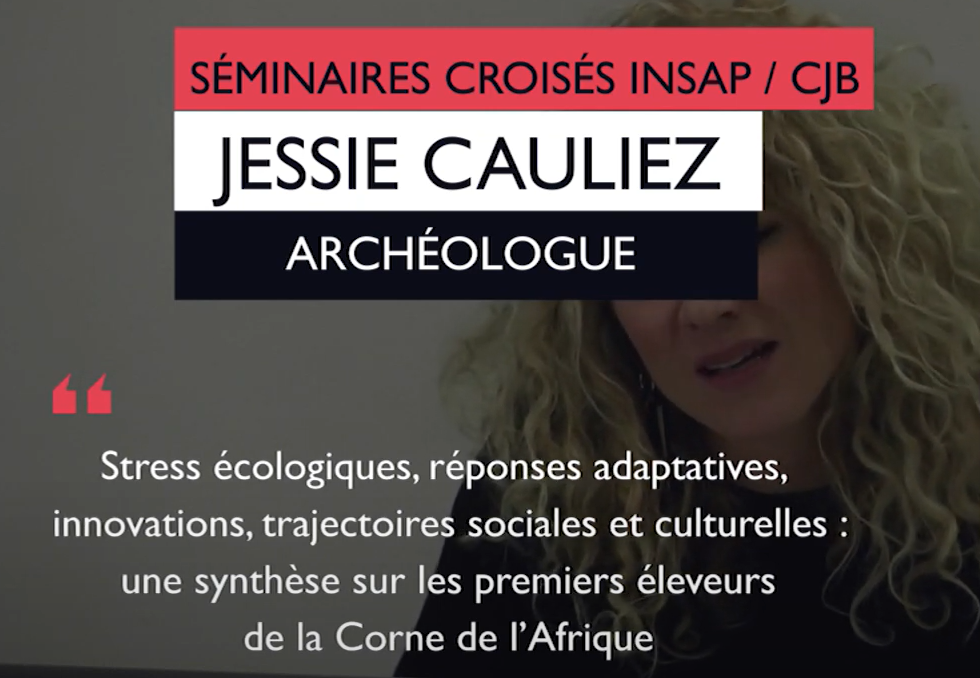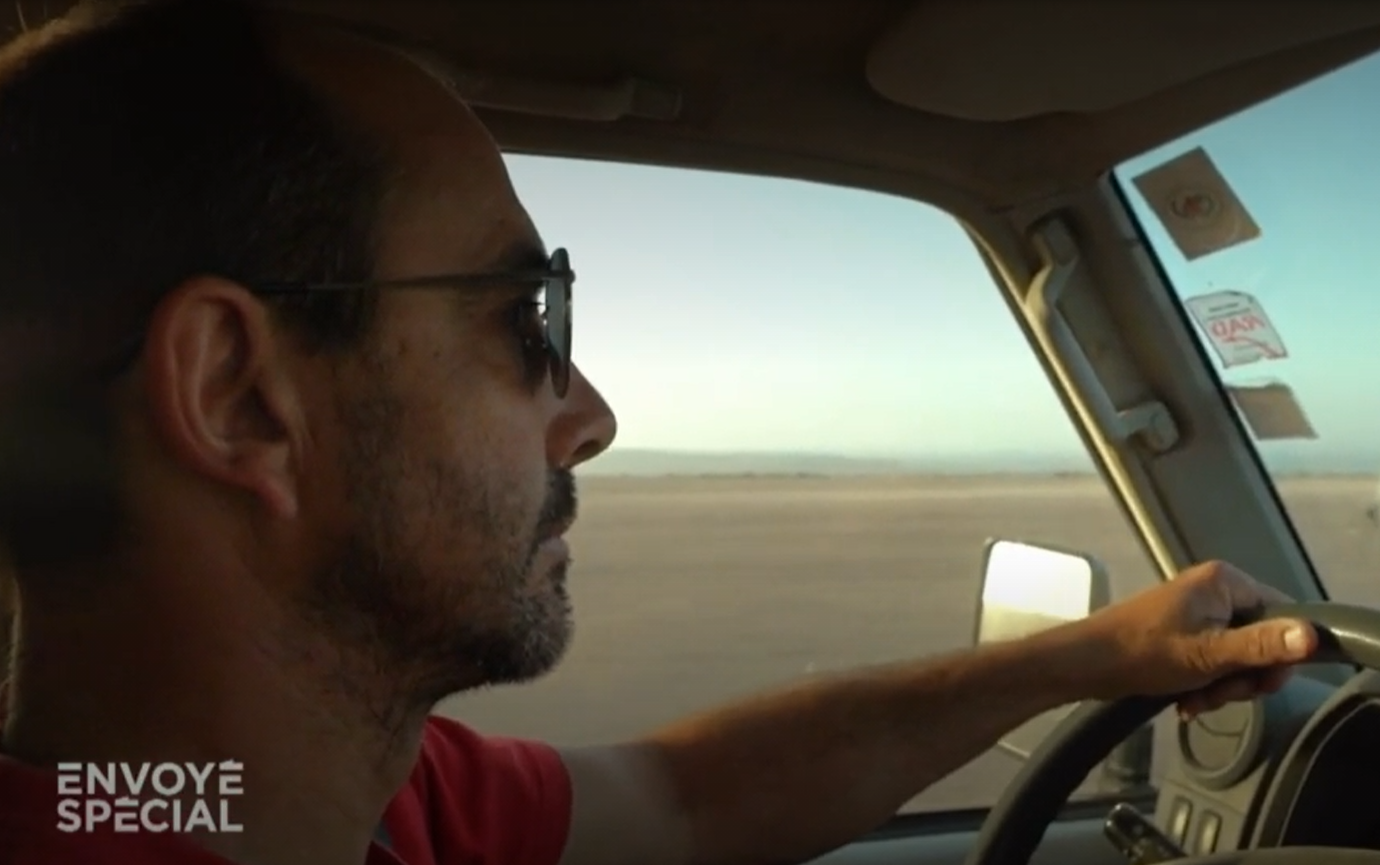On the banks of Lake Abbe
The discovery in 1982 of the site of Asa Koma in the Republic of Djibouti and its subsequent excavation was the starting point for a research programme in the Gobaad lake basin, with the aim to study the first production societies in the Horn of Africa.
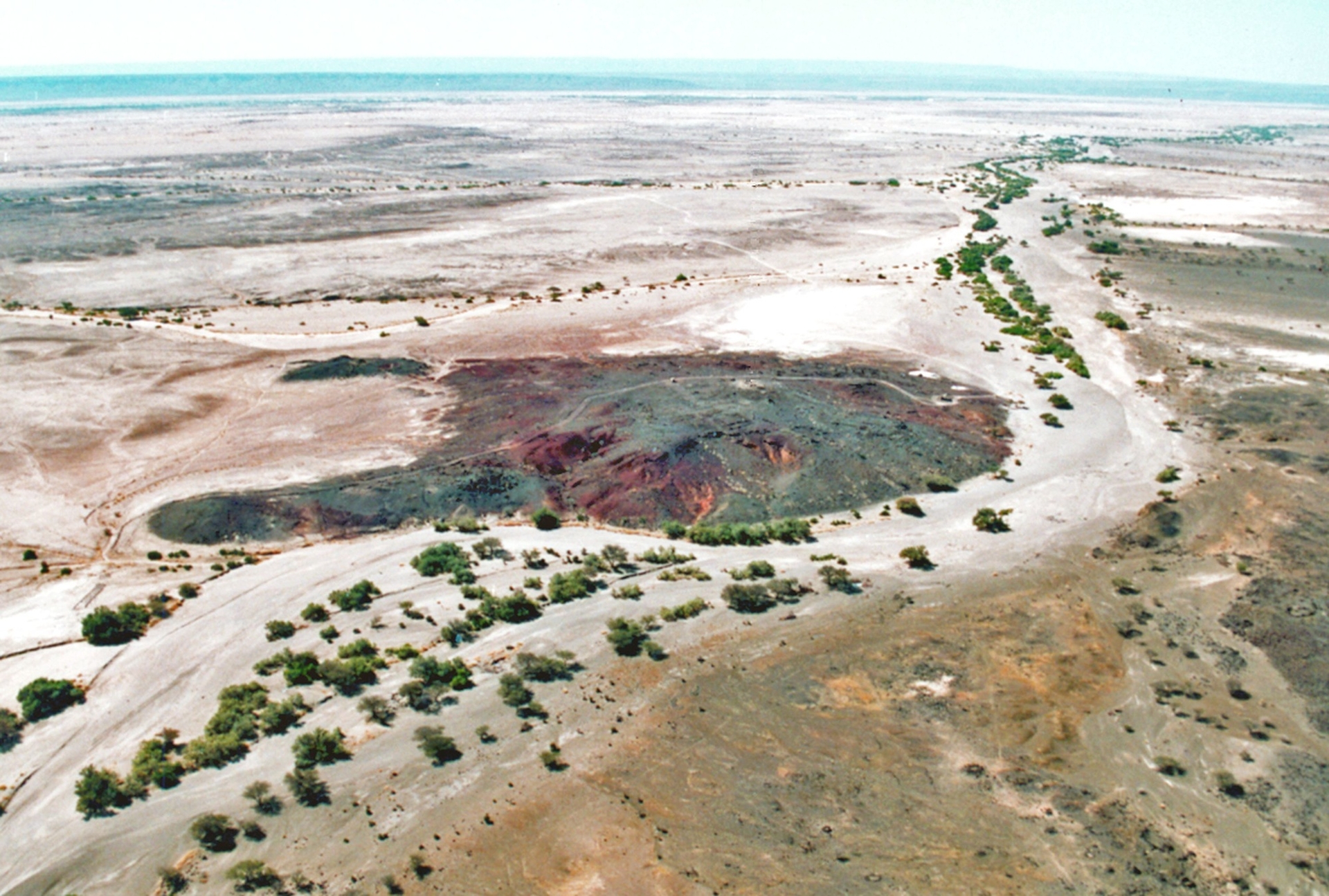
Lakeside fishing communities
Between 10000 and 2000 BCE, Lake Abbe, to the southwest of the Republic of Djibouti, in the Horn of Africa, experienced alternate wet and arid climatic phases. Around 2500 BCE, although water levels in the lake had begun to drop, it covered a much wider area than it does today and was teeming with fish. Small communities of fishers, hunters and gatherers settled near the lakeside.
Seasonal habitats
The Asa Koma site, a seasonal habitat on a volcanic hill overlooking the lake plain, was excavated on several occasions between 1984 and 1998. Of the one hundred or so sites dating from the same period identified in the Gobaad lake basin, it is the one that sheds the most light on the subsistence activities of these populations and helps to characterize their material culture, which includes modelled pottery, lithic industry and personal decorations.
Fishing, hunting and domestication?
A study of faunal remains has revealed how the occupants of the site lived primarily from fishing and, to a lesser degree, from hunting but they were also the first in this East African region to take a decisive step towards developing a production economy based on a livestock holding of cattle and goats.
A favourable climate
Palaeo-environmental studies have confirmed that the climate, during the second half of the third millennium BCE, while evolving gradually towards an arid environment, was still wetter than it is today, allowing its inhabitants to built up abundant stocks of fish meat using long-term conservation techniques.
About the mission
The Premières Sociétés de Production dans la Corne de l’Afrique mission (French Ministry for Europe and Foreign Affairs and IRAH in Djibouti) has been directed since 2013 by J. Cauliez (CNRS, UMR 5608 Toulouse). It was created in 1984 by R. Joussaume and led from 2001 to 2013 by X. Gutherz.
Project supported by the French Ministry for Europe and Foreign Affairs on the advice of the Excavation Committee (Commission des fouilles).
The mission’s other sites:
Useful links
- Presentation of the mission on the website of the Laboratoire Traces UMR 5608 – Toulouse
- The mission has been awarded the SEEG label: Global ecology study sites or SEEG (CNRS – INEE programme)
- Mission implemented under an agreement with the Centre Français des Études Ethiopiennes IFRE 23 – USR 3127, Addis Ababa, Ethiopia
- Mission implemented in partnership with the Institut des Déserts et des Steppes
- Sponsorship


